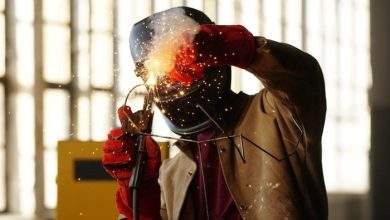
Denver’s business industry grows as companies seek modern workspace solutions that attract talent and foster productivity. The city’s strategic location and economic growth create substantial demand for innovative office environments. Traditional cubicle farms no longer meet the expectations of today’s workforce.
The Mile High City offers unique opportunities and challenges for office development projects. Local zoning regulations and building codes shape project possibilities while ensuring community compatibility. Commercial construction in Denver demands expertise in navigating these regional factors. This blog explores how strategic office development transforms Denver’s commercial real estate market through innovative construction approaches.
Adaptive Reuse Projects Transform Historic Buildings
Denver’s rich architectural heritage provides excellent opportunities for adaptive reuse of office developments. Historic warehouses in the RiNo district become modern tech company headquarters with exposed brick walls and soaring ceilings. Former manufacturing facilities transform into creative office spaces that blend industrial character with contemporary amenities. These projects preserve the city’s architectural identity while meeting modern business requirements. Adaptive reuse construction often proves more cost-effective than ground-up development.
Sustainable Design Integration in Modern Office Construction
Environmental consciousness drives office development decisions as companies prioritize sustainability goals. LEED certification has become standard for premium office projects throughout Denver’s business districts. Energy-efficient building systems reduce operational costs while supporting tenant sustainability initiatives. Solar panel installations and green roof systems capitalize on Colorado’s abundant sunshine and environmental awareness. Water conservation features address regional climate concerns while reducing utility expenses.
Technology Infrastructure Requirements for Modern Workspaces
Contemporary office development demands robust technology infrastructure that supports digital business operations. High-speed fiber optic networks provide the backbone for cloud computing and video conferencing systems, while professional fiber cable management ensures network operators can maintain high-performance connectivity and seamless scalability. Power distribution systems accommodate increased electrical loads from modern equipment and charging stations. Structured cabling systems offer flexibility for changing technology requirements and workspace reconfigurations. Smart building systems integrate lighting, security, and climate control through centralized management platforms.
Flexible Space Design for Evolving Work Patterns
Modern office design emphasizes adaptability to accommodate changing business needs and work styles. Moveable partition systems allow space reconfiguration without major construction projects. Multi-purpose areas serve various functions throughout daily and seasonal cycles. Collaboration zones support team projects while quiet areas provide focused work environments. Open floor plans balance interaction opportunities with individual productivity requirements.
The following design elements support flexible office space utilization:
- Modular furniture systems that reconfigure easily for different team sizes and project requirements
- Convertible meeting rooms with folding walls that create larger event spaces when needed
- Hot-desking stations that accommodate remote workers and flexible scheduling arrangements
- Shared amenity spaces including kitchens, lounges, and recreation areas that build community
Post-pandemic work patterns influence office design decisions as companies balance remote work options with in-person collaboration needs. Hybrid work models require spaces that accommodate varying daily occupancy levels efficiently.
Economic Impact and Market Development Opportunities
Office development projects contribute significantly to Denver’s economic growth through job creation and tax revenue generation. Construction phases employ local contractors, suppliers, and skilled trades workers. Completed projects attract businesses that create permanent employment opportunities for area residents. Premium office developments increase property values in surrounding neighborhoods while attracting supporting retail and service businesses. Commercial construction in Denver benefits from the city’s pro-business climate and streamlined permitting processes.
Office space development through innovative construction techniques positions Denver as a leading business destination. Modern workspace design attracts companies and employees who value functionality, sustainability, and flexibility. Strategic development projects transform neighborhoods while preserving the city’s unique character.




